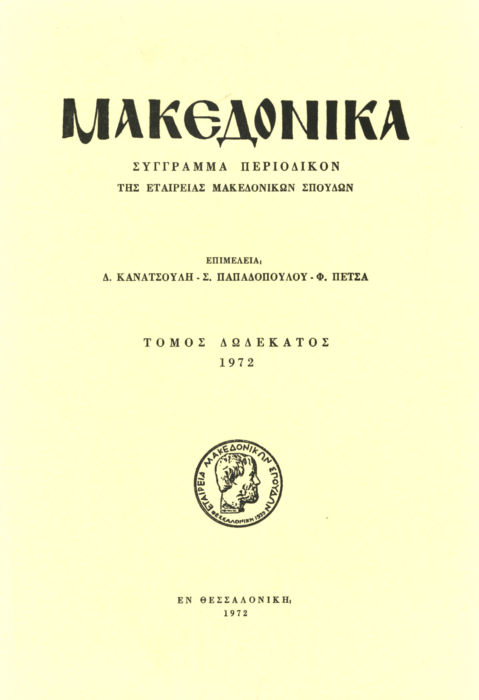Les villages Haut et Bas Beala de la région Strouga-Achrid
Аннотация
L’article, se référé à Haut Beala, village grecovalaque de la Macédoine . nord-ouest, appartenant aujourd’hui en Yougoslavie et ayant tombé en décadence.
L’auteur, qui est né à ce village et qui fut s’expatrié jeune, a visité son pays natale en 1964, décrit son enfance à son village vers le début de notre siècle. Alors, il relate de l'environnement, de la fondation, du climat, de la végétation, de la faune et de la population du village Haut Beala. Ensuite, nous nous renseignons sur les occupations, l’habillement, la situation économique, la langue, la vie religieuse, l’instruction, les moeurs et coutumes, l’administration, les manifestations, l’alimentation et la sûreté des habitants.
D’ailleurs, l’auteur contient à son article quelques chansons en langue valaque et des renseignements considérables sur le village Bas Beala. Au terme de son article l’auteur donne quelques informations, tant géographiques qu’historiques, sur la région Stouga-Achrid.
Article Details
- Как цитировать
-
Τοπάλης Α. (1972). Les villages Haut et Bas Beala de la région Strouga-Achrid. Μακεδονικά, 12, 424–491. https://doi.org/10.12681/makedonika.1015
- Раздел
- Άρθρα

Это произведение доступно по лицензии Creative Commons «Attribution-NonCommercial-ShareAlike» («Атрибуция — Некоммерческое использование — На тех же условиях») 4.0 Всемирная.
Authors who publish with this journal agree to the following terms:
- Authors retain copyright and grant the journal right of first publication with the work simultaneously licensed under a Creative Commons Attribution Non-Commercial License that allows others to share the work with an acknowledgement of the work's authorship and initial publication in this journal.
- Authors are able to enter into separate, additional contractual arrangements for the non-exclusive distribution of the journal's published version of the work (e.g. post it to an institutional repository or publish it in a book), with an acknowledgement of its initial publication in this journal.
- Authors are permitted and encouraged to post their work online (preferably in institutional repositories or on their website) prior to and during the submission process, as it can lead to productive exchanges, as well as earlier and greater citation of published work (See The Effect of Open Access).



